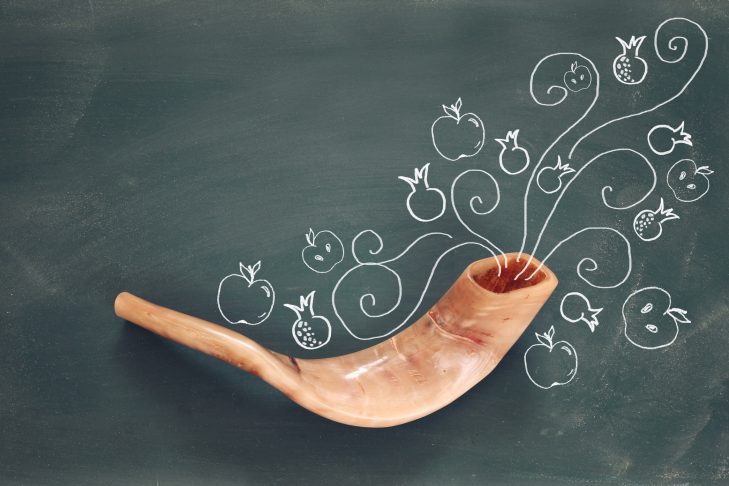This year I am stepping into the High Holiday season in a unique way: I am grieving. In years past, I entered this time with hope, eager to drink in a powerful sermon and break bread after a challenging, albeit meaningful fast. Having lost my beloved father-in-law on July 20, the feelings of grief echo within me as I push through the daily tasks of raising two small children, starting a new job, running a small business, maintaining a clean home, and staying (happily) married, to name a few of my adult responsibilities.
Hungry to engage in self-care especially during this time, I recently participated in a virtual meditation I’ve joined at 12:30 p.m. daily since March 2020. Organized by the Institute for Jewish Spirituality, or IJS, a different rabbi or spiritually-affiliated person leads the group in text study, followed by meditation, and ends with the Mourner’s Kaddish. With a gentle, soothing voice, the guide connects the upcoming Torah portions, holidays, and seasons to our daily lives full of struggle, sorrow, joy, loss, and hope. This meditation practice has become a constant in my life, almost like a new friend; our connection has taken hold and the relationship is now blooming. It has supported me through the pandemic, changing careers, losing a child, birthing a child, and, most recently, losing my father-in-law.
Finding words to describe grief is like describing the color blue—it is seemingly impossible. As a writer, I have been finding it challenging to describe this loss. It is losing Charles Kenneth Smith, who was born on Aug. 28, 1943, and died on July 20, 2023…and it is much more than that: It’s our life that continues without him as part of it. It’s our 8-month-old daughter grinning as she spreads avocado across her face without him there to chuckle; it’s our 5-year-old son pushing off on his bike without training wheels for the first time without him there to give a high-five; it’s my wife listening to his favorite song without his humming alongside; it’s planning birthday parties, holidays, and anniversaries without his gentle, kind presence. These are the words I’ve come up with, and, still, they fall short in describing the magnitude of our collective grief and resilience.
Swallowed recently by a wave of grief, I tuned into the daily IJS meditation and was struck by the message: Words, even the words of Torah and Talmudic scholars, have their limitations. It is music and sound that transforms us from grasping for words to feeling from within our bodies. The niggun, the melodies, the songs of the Jewish people, enable us to feel more connected to ourselves, to one another, and to the world at large without uttering one word.
The shofar is sounded 100 times during a traditional Rosh Hashanah service; 100 opportunities to experience a feeling in our physical being that words cannot. The vibration of each shofar blast is saturated with meaning.
First, it is the tekiah—a single blow—that brings everyone to attention. The Tekiah confronts us with urgency. My father-in-law has died. He has transitioned. He is gone. Life will never be the same.
Then, the shevarim—three broken blows that sound like crying. It is the sound of us weeping at his service, the tears of joy we shed recalling he wanted his last meal to be vanilla ice cream (and it was!). It is the wonder at him no longer walking and talking among us.
Then, the truah follows—nine rapid-fire blows. It is the buzz of a loud alarm clock. It is all of the business involved when he transitioned—the affairs to organize, the meals to prepare and deliver, the messages to send to our community. It is fast and furious and it wakes us up to the call of a new year, a new reality.
Then the big finale is the tekiah gedolah—the great blast to wrap it all up. It is long, loud, triumphant, and encompassing. It is the transition from life to what lies in the great beyond. It is the boom for us still living. It is the duality of the message from the Hasidic rebbe that “for my sake the world was created” and “I am nothing but dust and ashes.”
May my father-in-law’s life and memory be a blessing. May his kindness live on through each of us, most especially as we step into the High Holidays this year. Charles was a man of few words, but a profound presence. Let us feel the sounds of the shofar with our entire being. Let us pause our tongues and experience the vibrations that words cannot describe.
This post has been contributed by a third party. The opinions, facts and any media content are presented solely by the author, and JewishBoston assumes no responsibility for them. Want to add your voice to the conversation? Publish your own post here. MORE



